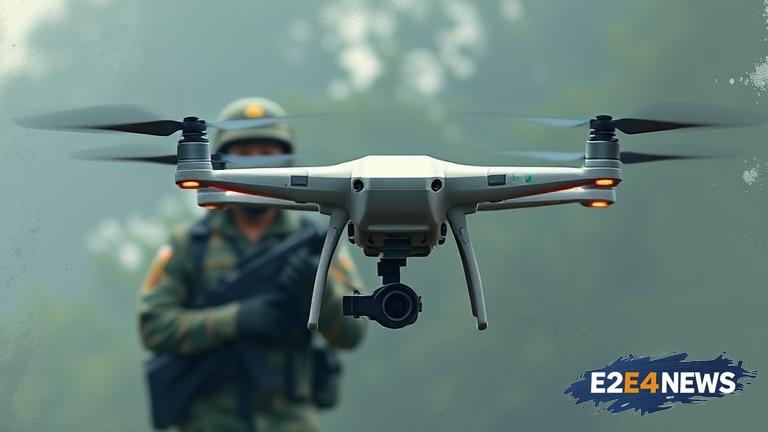The Royal Thai Army has recently strengthened its measures against drone threats, as part of its ongoing efforts to enhance national security. This move is in response to the growing concern over the potential use of drones for malicious purposes, such as espionage, sabotage, and terrorism. The army has acknowledged the need to stay ahead of the curve in terms of technology and tactics, in order to effectively counter the drone threat. To this end, the Royal Thai Army has been investing in advanced drone detection and tracking systems, as well as developing strategies for neutralizing or disabling hostile drones. The army has also been conducting regular drills and exercises to test its response to drone-related scenarios, and to identify areas for improvement. Furthermore, the Royal Thai Army has been working closely with other branches of the military, as well as with law enforcement agencies, to share intelligence and best practices in countering drone threats. The use of drones for recreational purposes is also being regulated, with strict guidelines and regulations being put in place to prevent the misuse of drones. The Royal Thai Army has emphasized the importance of public awareness and education, in order to prevent the unauthorized use of drones and to promote a culture of security and responsibility. The army has also been engaging with the private sector, to leverage expertise and technology in the development of counter-drone measures. The Thai government has also been actively promoting the development of the drone industry, while ensuring that security and safety concerns are addressed. The Royal Thai Army’s efforts to counter drone threats are part of a broader national security strategy, which aims to protect the country’s sovereignty and interests. The army has also been working to enhance its cybersecurity capabilities, in order to prevent and respond to cyber threats. The use of drones for military purposes is also being explored, with the Royal Thai Army considering the potential benefits of using drones for surveillance, reconnaissance, and other tasks. The development of drone-related technologies is also being supported, with the government providing funding and resources for research and development. The Royal Thai Army’s efforts to counter drone threats have been recognized internationally, with the country being seen as a leader in the region in terms of drone security. The army’s approach to countering drone threats is being studied by other countries, which are seeking to learn from Thailand’s experiences and best practices. The Royal Thai Army’s commitment to national security and public safety has been reaffirmed, with the army pledging to continue to work tirelessly to protect the country and its people from all threats, including those posed by drones. The army’s efforts to counter drone threats are also being supported by the public, which is recognizing the importance of national security and the need for effective measures to prevent and respond to drone-related threats. In conclusion, the Royal Thai Army’s efforts to strengthen its measures against drone threats are a critical component of Thailand’s national security strategy, and demonstrate the country’s commitment to protecting its sovereignty and interests. The army’s approach to countering drone threats is comprehensive and multifaceted, and involves the use of advanced technologies, strategies, and tactics. The Royal Thai Army’s efforts to counter drone threats will continue to evolve and adapt, as the nature of the threat continues to change and evolve.
